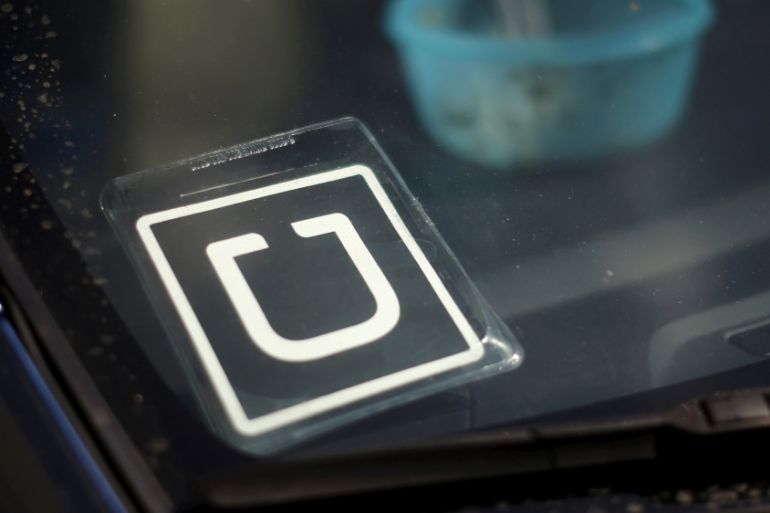Women react to Saudi $3.5bn Uber cash injection
As Saudi invests in app, women question Uber’s claim that it offers “extraordinary mobility that didn’t exist before”.

Saudi women have dismissed the idea raised by Uber that the company was massively improving their mobility, as the car ride service received its biggest cash injection from the kingdom’s public investment fund.
Uber, which has been operational in the country for two years, said on Wednesday that it had raised $3.5bn from Saudi Arabia’s sovereign wealth fund, gaining a crucial partner in its expansion into the Middle East.
Keep reading
list of 4 itemsWhy are nations racing to buy weapons?
Parallel economy: How Russia is defying the West’s boycott
US House approves aid package worth billions for Ukraine, Israel
“Our experience in Saudi Arabia is a great example of how Uber can benefit riders, drivers and cities and we look forward to partnering to support their economic and social reforms,” Travis Kalanick, one of Uber’s founders and its chief executive, said in a statement.
Jill Hazelbaker, an Uber spokeswoman, said the company believes women should have the right to drive. In an interview with The New York Times, she said: “In the absence of that, we have been able to provide extraordinary mobility that didn’t exist before – and we’re incredibly proud of that.”
Even though it is not an official law that women cannot drive, Saudi clerics maintain a religious edict barring women from driving.
In spite of strict gender segregation practice, however, women have for years ridden with family drivers, taxis and more recently Uber cars alone, without a male relative.
‘A certain criteria of women’
According to Hatoon al-Fassi, a women’s rights activist and academic at King Saud University, Uber has not solved transportation issues for all Saudi women.
“We are speaking about a certain criteria of women, those who have a bank account and credit card – which is not the case of the majority of women,” al-Fassi told Al Jazeera.
She added that many others were also excluded, including those who did not possess smartphones and were not “tech-literate”.
“So it is an additional service that facilitates the lifestyles of one sector of Saudi women, who are the minority.”
She warned against interpreting the popularity of Uber as a feat for women’s rights.
“It is not this [Uber] that will make the difference … there are people that have an interest in keeping women the way they are.”
Eighty percent of Uber users in Saudi are women, according to the company, which launched in the kingdom in May 2014.
‘An investment story’
Al-Fassi said that while the service was limited to a minority, there was more confidence in Uber and similar initiatives such as Careem, as opposed to regular taxis, in terms of safety.
The recent investment from the Saudi Arabian Public Investment Fund was part of Uber’s most recent financing round that valued the company at $62.5bn, Uber said, making it the most highly valued venture capital-backed company in the world.
“This is mainly just an investment story,” Mona abu Suliman, a media personality and consultant in Riyadh, told Al Jazeera. “It does not matter what is happening now. Women still cannot drive.”
She added, however, that services such as Uber were “heaven-sent” as they solved some transportation issues.
OPINION: Reform in Saudi Arabia comes with social responsibility
The Saudi deal calls for the head of the fund, Yasir Al Rumayyan, to join the Uber board, and will boost Uber’s cash holdings to more than $11bn.
“We’ve seen first-hand how this company has improved urban mobility around the world and we’re looking forward to being part of that progress,” Al Rumayyan said.
He added that the plan fits with the kingdom’s Vision 2030, the blueprint for diversifying its economy away from oil.
“This ambitious and far-reaching plan presents a number of goals, including unlocking strategic sectors such as tourism and entertainment, boosting employment opportunities and women’s participation in the workforce, and encouraging entrepreneurship,” he added.
With additional reporting by Zineb Abdessadok